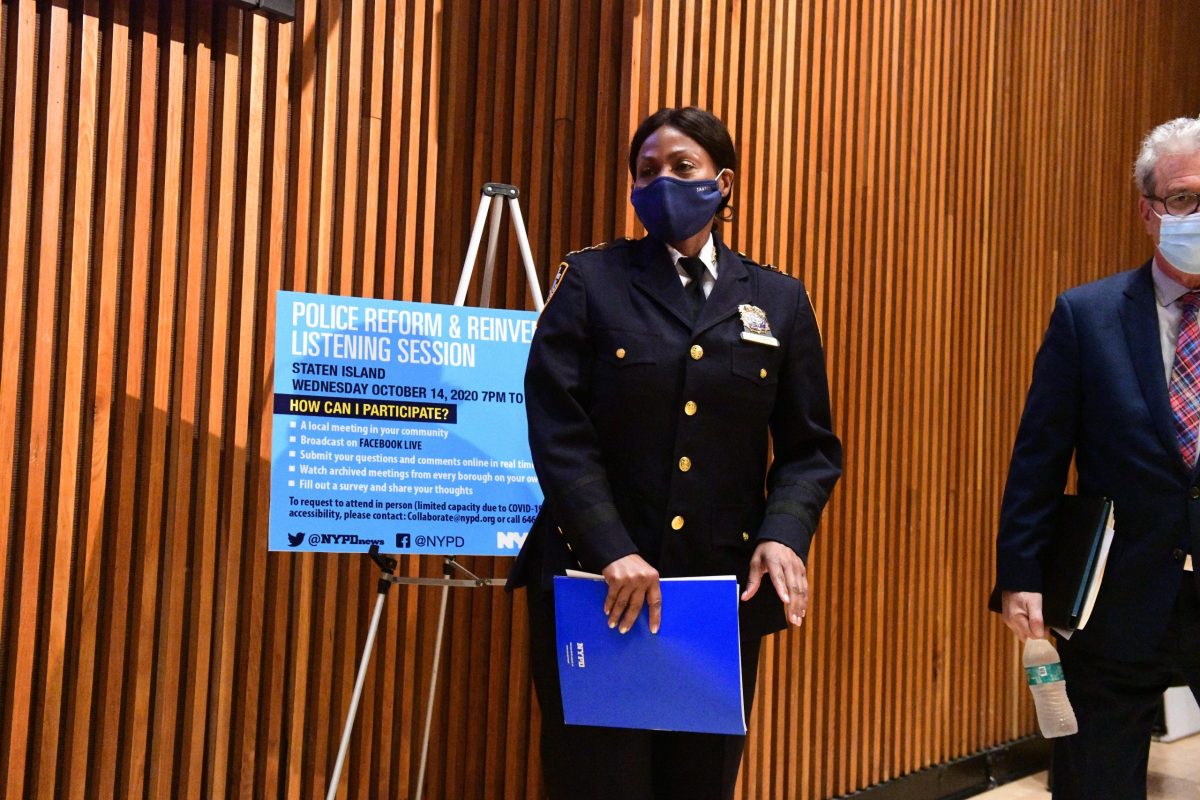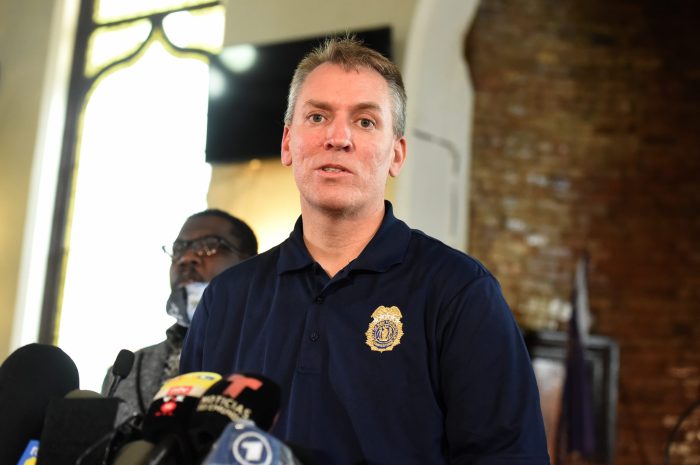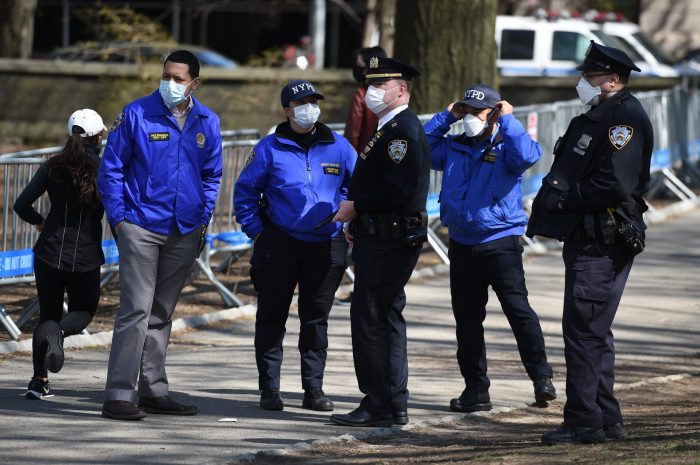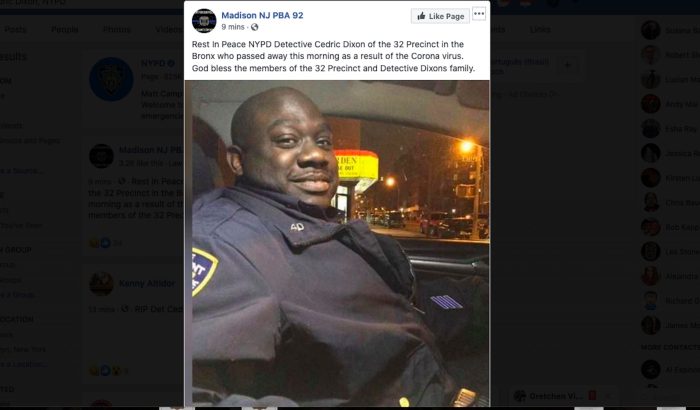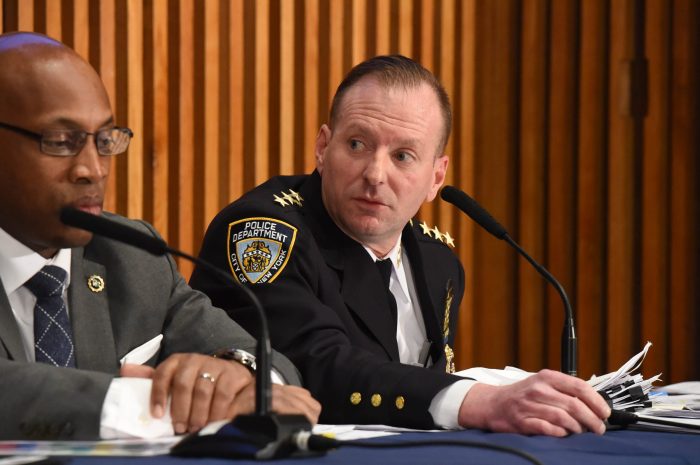The NYPD has many meetings with community groups all year-round, from precinct councils each month, Build a Block conclaves, and borough command summits. Still, the police were faced with weeks of protests and criticism by young people who say they don’t trust the cops – enflamed by the death of George Floyd in Minneapolis in May.
So some in the community ask what will make the latest partnership announced by the NYPD this afternoon at Police Plaza different from any other meetings? How would this new partnership be able to reach mistrusting young people who continue to lump in all cops as ‘racist abusers’ or ‘street bullies?’
“We have to be prepared to listen and hear how are our policies and practices affect the community — it’s a unique opportunity to partner with these groups and with our team to find out how what we do impacts the 8.5 million New Yorkers,” said Commissioner Dermot Shea, flanked by leaders of two of the three organizations and by top chiefs who will lead the efforts.
“It’s an opportunity to make an impact – if I didn’t believe it, I’d be wasting my time,” Shea said.
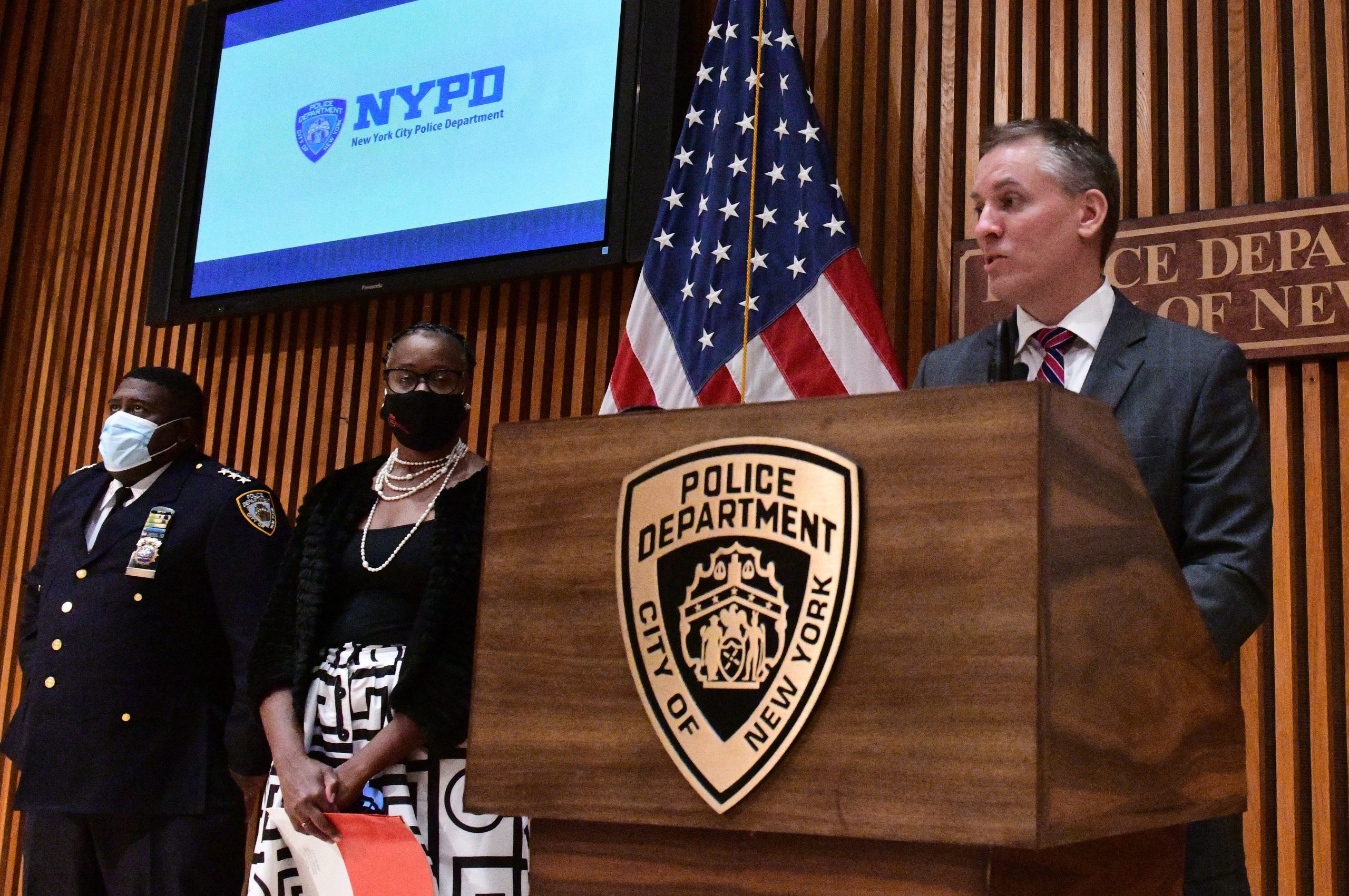
The new effort is a partnership with Arva Rice, President and CEO of the New York Urban League; Jennifer Jones Austin, CEO and Executive Director of the Federation of Protestant Welfare Agencies; and Wes Moore, CEO of Robin Hood. The effort was touted “to engage communities and people who live, work and serve throughout the city in the Department’s ongoing effort to ensure public safety that is fair, responsive to, and considerate of all New Yorkers.”
The effort is part of the Neighborhood Policing strategies of the NYPD, an effort to reach out to communities to find out what they want policing to be in their neighborhoods and shape police policies to address those concerns. The NYPD and their partners will launch eight community meetings in all five boroughs over the next four weeks as a springboard to collect input critical to transformation. This joint effort between Commissioner Shea, Mayor Bill de Blasio, and these advisors will respond to and extend beyond Governor Cuomo’s New York State Police Reform and Reinvention Collaborative, which is designed to create bonds between the community and law enforcement.
The meetings will include local leaders, clergy, elected officials, and grassroots groups in person by invitation and virtually to hear concerns, complaints, and seek solutions that will help the NYPD earn the trust of those who currently question police tactics and intent.
Joining them was Community Affairs Chief Jeffrey Maddrey and Chief of Collaborative Policing Chief Juanita Holmes, both of whom have worked closely with minority communities over the years and have sought out-reach to listen to concerns of those communities that have been impacted by poorly conceived police policies in past years.
Their efforts continue to be an uphill battle to win the hearts and minds of the inner city where mistrust and disrespect of the police remain a problem. While leaders say meetings with community leaders are essential, reaching the youth is a great challenge as some precincts have more than 20 gangs with hundreds of members by police official accounts. Those gangs have been responsible for a vast majority of the shootings, homicides and violence city-wide, investigators have said in the past.
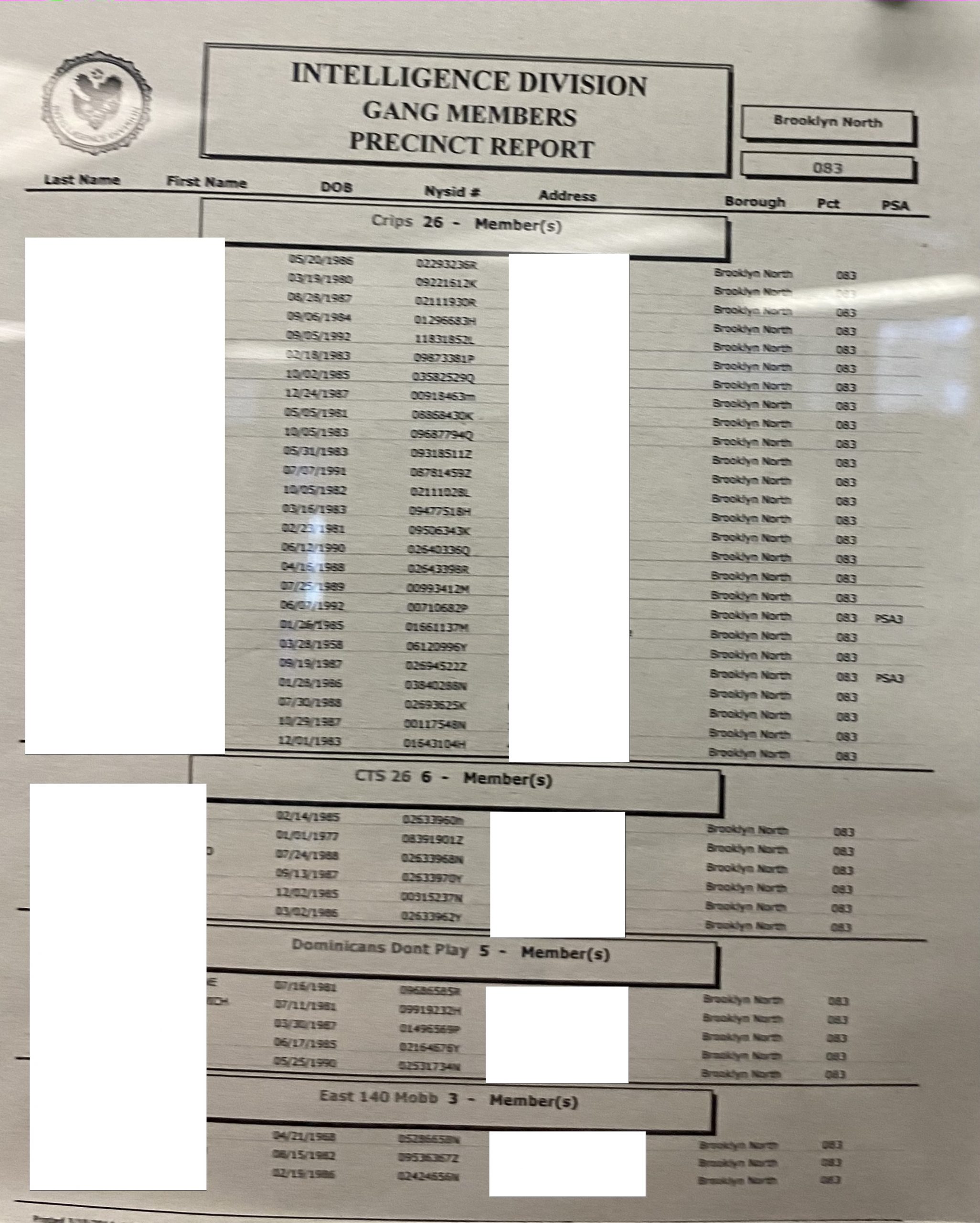
“We don’t sit in ivory towers – we engage on a regular basis,” said Austin, CEO of the Federation of Protestant Welfare Agencies in defending their efforts to reach the youth. “Our community organizers are people on the ground and are acting with the NYPD. Our responsibility is to work with those people, make sure the voice of everyone is heard, we are connected and will exploit those connections.”
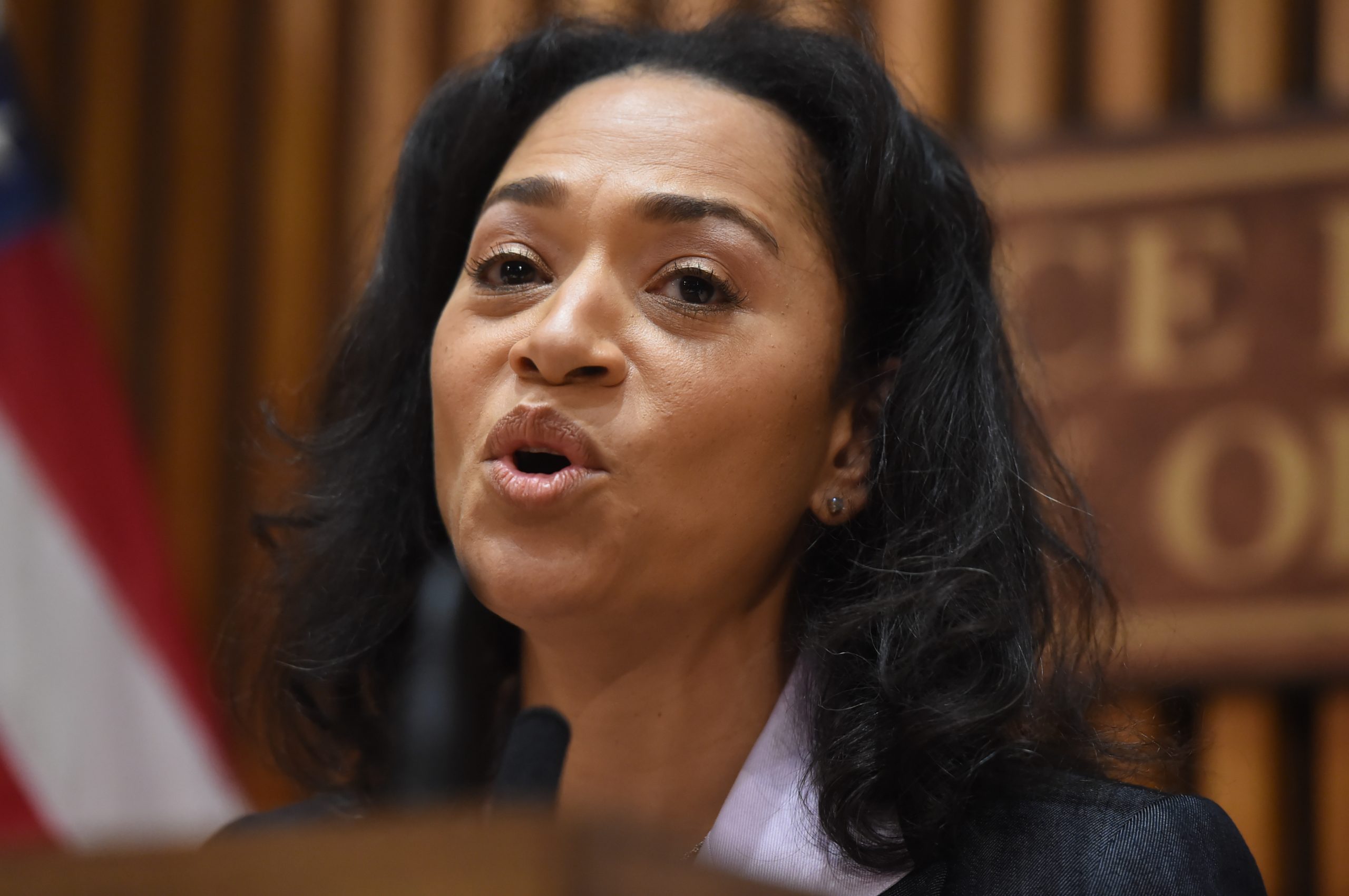
Chief Holmes said the partnerships with the three organizations represent “an incredible opportunity to reach kids and even gangs.” She outlined eight meetings, the first of which will occur in Staten Island on Oct. 14, in Staten Island because it’s in the vicinity of where Eric Garner died after an alleged chokehold that spurred public outrage.
“What is different is that we have not worked with this group of people before and we are going in with our eyes wide open,” Holmes said. “We will go to these community meetings and get a pulse on things.”
She admitted that there are many community leaders who are “the same people who attend such meetings on a regular basis.” She said they will be using high tech solutions to reach out to youth through social media and on the ground with these organizations. She added that they are working with people who are familiar with street gangs and “we are thinking outside the box – we are looking for ways to reach youth, and technology is one of those ways.”
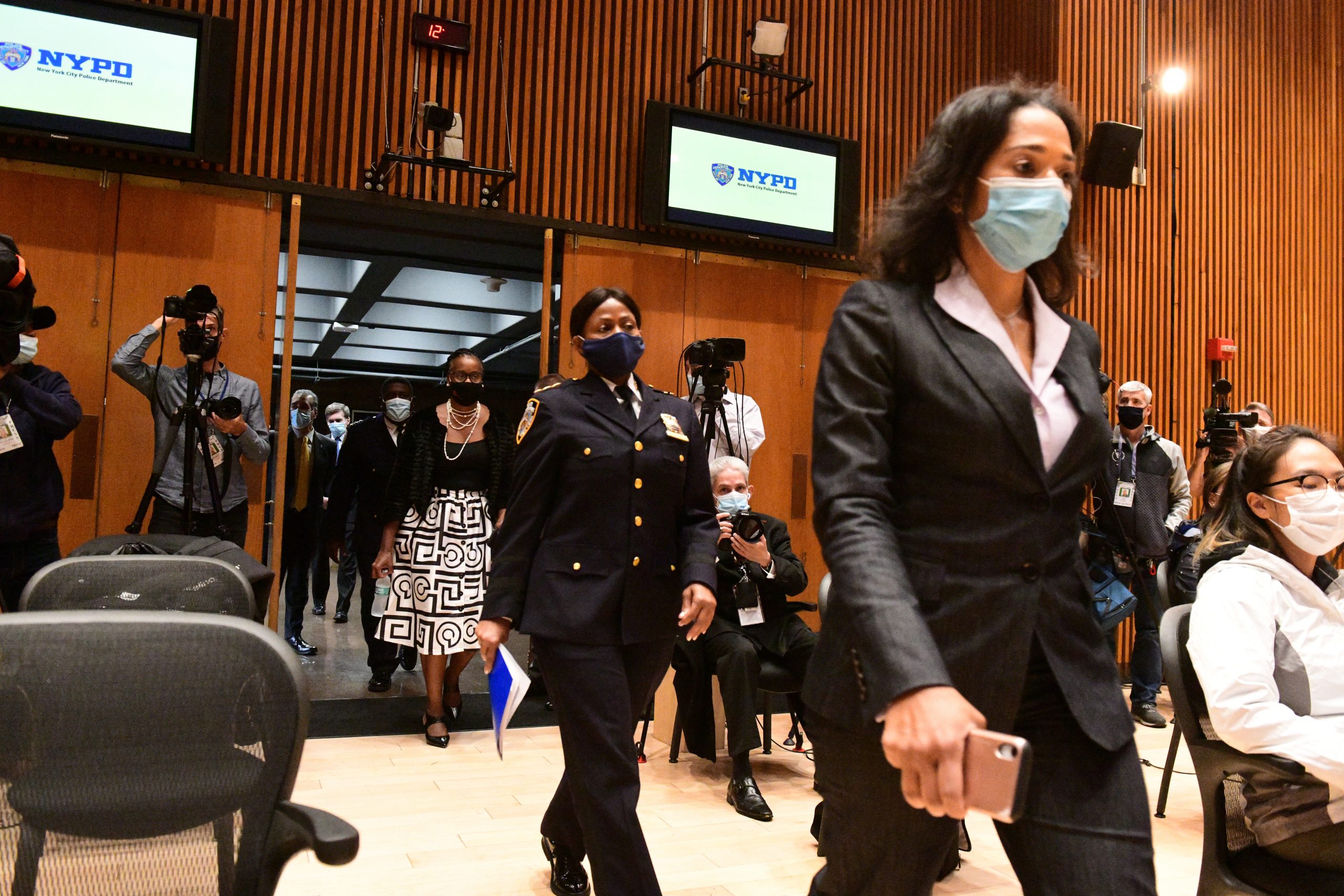
Arva Rice of the Urban League said they are seeking to address the racial disparities and she pointed to statistics in which 20 percent of youth are people of color but represent 60 percent of arrests.
“This year our city and our nation faced a health, economic and a criminal justice crisis paving the way for reflection and reform. We have a moral imperative to work to make sure that community voices are heard and New Yorkers feel safe and respected no matter the neighborhood that they reside,” Rice said. “The Statewide and mandated `Police Reform and Reinvention Collaborative’ is a welcome opportunity to engage in this process learning from New Yorkers as well as experiences and practices around the country. Working with Commissioner Shea, NYPD, the Mayor’s Office, the City Council, and my colleagues is a role I take with great responsibility and commitment to create recommendations that can truly improve our great city.”
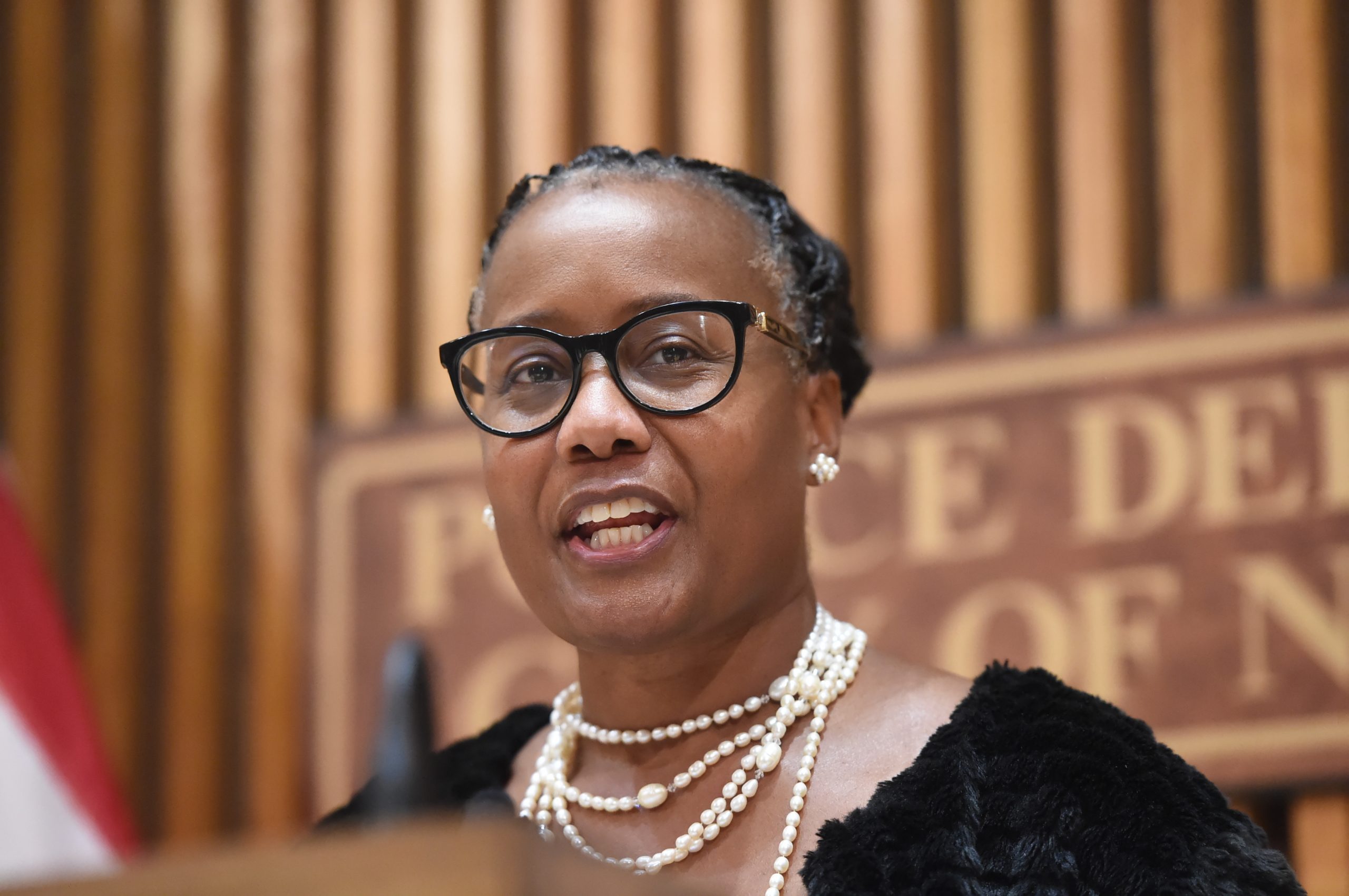
Shea was confident that they could make a difference working closely with their new partners.
“With a sustained focus over the last nearly seven years, NYPD leaders have worked to reinforce our basic mission of keeping people safe while building trust with the New Yorkers we serve,” Shea said. “In law enforcement, if you aren’t striving to improve, then you shouldn’t be in this line of work. This new effort, with these critical partners, is vital to making the Police Department stronger, fairer and more transparent. I am grateful to Arva, Jennifer and Wes and look forward to the work ahead.”
For the last nearly seven years of the de Blasio administration, the NYPD has been making fundamental changes in policing, including building strong relationships through Neighborhood Policing and drastically reducing the level of enforcement by focusing resources on the drivers of violence through Precision Policing. The NYPD has also reformed its training, disciplinary procedures and use of force policies to increase transparency and fairness.
Shea admits that even more needs to be done to improve community relations and cooperation.
“It’s frustrating on many levels as so many different things are going on at times exact same time — but we are all New Yorker’s and we love this city period,” Shea said. “Together with our partners they will lead the way out of this — heal this city and while New Yorkers are all skeptical at times you have to have a little faith — so I say come join us.”
He added that while the meetings will occur over three weeks, “we are planning for a much longer game of five to 10 years from now.”
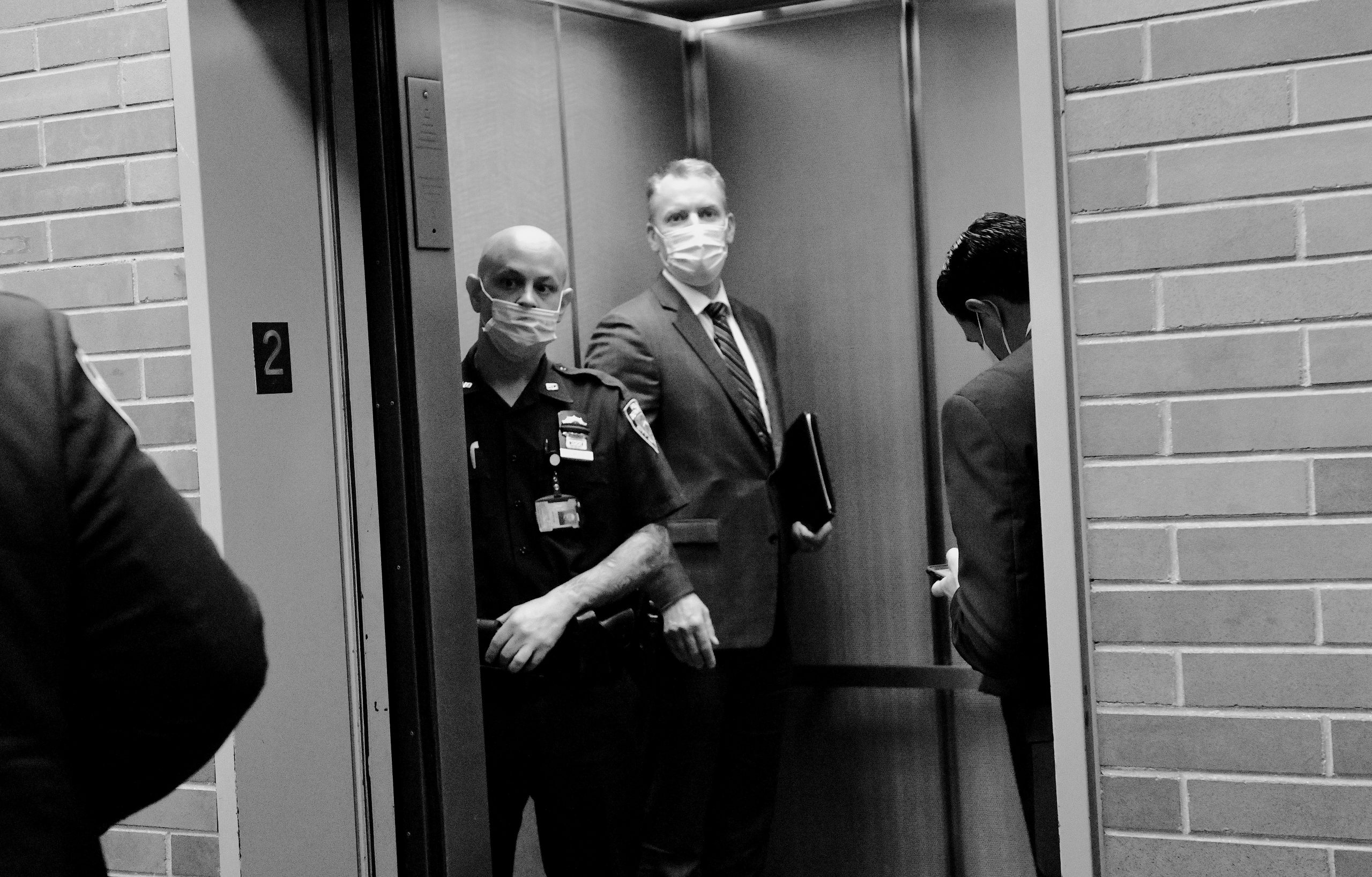
The meetings will be by invite only, though all meetings will be live-streamed on social media and later replayed on Youtube according to NYPD officials. The meetings are scheduled for Wednesday, Oct. 14 in Staten Island; Friday, Oct. 16 in northern Queens; Monday, Oct. 19 in southern Queens; Wednesday, Oct. 21 in the Bronx; Friday, Oct. 23 in northern Brooklyn; Monday, Oct. 26 in southern Brooklyn; Wednesday, Oct. 28 in northern Manhattan; Friday, Oct. 30 in southern Manhattan.



